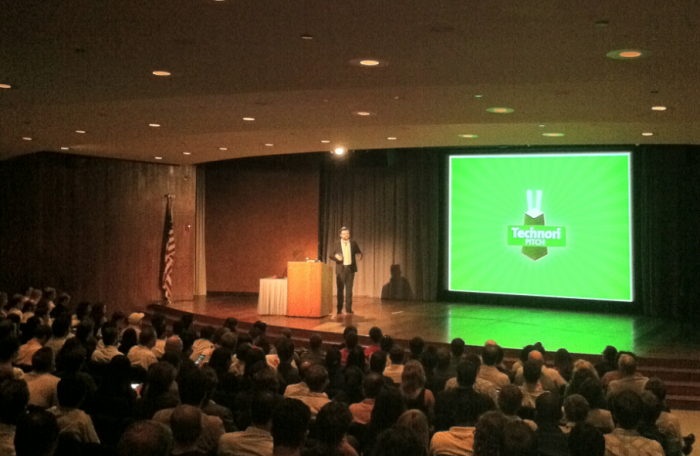

When he was only 12 years old Emerson Spartz convinced his parents to let him home school himself. That same year he founded MuggleNet, “the world’s #1 Harry Potter fan site.” To increase the traffic on his site, Spartz began tirelessly emailing thousands of webmasters from other Harry Potter fan sites asking them to link to MuggleNet. This positive experience with virality (as in “going viral”) caused a shift in the focus of his homeschooling curriculum.
Spartz became obsessed with virality. He wanted to harness it and use it to change the world. Running MuggleNet gave Spartz the business experience he needed: by applying basic management science to a very primitive fandom he was able to recruit a group of 120 paid and unpaid freelancers to contribute content and help grow the site.
After he realized the quickest way to learn was by reading biographies of successful people, Spartz, a speed reader, began reading four biographies a day, he said. “Since I was spending so much time reading about the lives of successful people I started learning how to emulate those patterns. If you study people who have already figured it out you will get there a lot quicker—trial and error sucks,” Spartz said.
After studying neuroscience he realized that your brain can’t tell the difference between what you vividly imaged and what you actually experienced, allowing you to learn from others and cram decades of experience into a short period of time. It was during this time that Spartz began to nail down the keys to viral success. Now, at only 25 years old he has become the CEO of Spartz Media and an expert on virality.
“The more incentive you give people to share, the more likely they are to share,” Spartz said when summarizing his conclusions on virality. This simple phrase has large implications. Because virality is the online version of world of mouth marketing, you can successfully employ certain marketing tactics.
To make something viral you need a product that is memorable and loud, so when people are using it others take notice. This can be done through unique packaging like the bright blue sleeve on the New York Times delivery paper or a simple signature asking you to sign up in the bottom of an email, like Hotmail did. Spartz also suggests incorporating discounts and actively asking for referrals.
“Build a great product, but don’t let your marking strategy depend on just having a great product,” Spartz said. The marketing campaign behind a viral product must be polarizing: according to Spartz, you need to find a way to make people pissed off or make them super happy so they will share your content.
When it comes to virality, testing is key. Luckily, Spartz has figured out a way to get other people to do this testing for him. “The beauty of the Internet is that it is this giant sandbox of experimentation and innovation. There are millions of people out there doing the testing for you,” Spartz said.
He has made a living off of studying successful people and companies, seeing what they do, learning from them and pushing past their accomplishments. Using shortcuts like Wayback Machine, Spartz is able to see the specific changes websites made and how these changes increased their traffic, allowing him to outsource his testing.
Currently focused on sharing content that makes others learn, laugh and feel inspired, The Spartz Media Network is responsible for sites like OMG Facts, Gives Me Hope and Memestache, a meme generator. These sites have allowed Spartz to build up a large network, a variety of resources and strong execution abilities. “When we launch a new site we have a huge audience. Getting new users is a problem we just don’t have,” Spartz said. This large fan base assures that any new project Spartz Media takes on will be a huge success.
Here’s the low down on the five startups pitching for the pitch portion of the event.
Studying abroad is a landmark experience for many college students. “Students who travel abroad are positively influenced their worldview, career and self-confidence,” said Jen Thomas, founder of Travel 720. Many students miss out on this once in a lifetime opportunity because they cannot afford to travel. Travel720 makes asking for money a little less awkward by giving these students a place to show off the details of their dream trip, raise money and share their experiences. A place where students can have an active role in fundraising for their upcoming trip, Travel 720 partners with travel programs and universities to help connect students with more affordable programs and secure funding for their trips.

Human Practice:
Reaching out to doctors is a painful, impersonal and tedious process. Human Practice overcomes the fact that most doctors have no online reviews by allowing users to connect with Facebook to see the doctors their friends love to use. Human Practice allows patients make better, more social decisions by letting users get to know the doctors before they meet them. “Research has shown that having a good relationship with your doctor actually helps you get better faster,” said Moses Hohman, co-founder of Human Practice. They have build up a network of reviews by collecting recommendations directly from the point of care, allowing them to connect and share the reviews of patients who have had a positive experience.

Every Last Morsel:
Every Last Morsel wants to transform the future of food and change the fact that Illinois produces only six percent of what it consumes by giving local micro-farmers and brands the exposure they need. They are making “eating local” more easier than ever by allowing users to find out where the farmers markets are and locate the nearest farms with surplus food. The location-based social platform will also display what the gardeners in user’s communities are currently growing. A big revenue stream for Every Last Morsel will be marketing to restaurants who want to buy local and currently a huge management task that deters many interested parties, said Every Last Morsel founder Todd Jones.

Citizen Made:
Citizen Made is providing dynamic product customization software at a low price point, which is perfect for smaller brands. A win-win situation, consumers get to design exactly what they want while companies get to sell their products with unmatched market intelligence and increased trend forecasting insights, said Rachel Brooks founder of Citizen Made. Citizen Made uses a low subscription-based fee to provide a service that normally costs hundreds of thousands of dollars. This allows them to focus on serving small brands, makers and creatives across many product categories. Last night, Citizen Made officially announced a new partnership with Shapeways, the largest 3D printing marketplace in the world.

Boomerang:
A social gifting platform, Boomerang helps users find local, compelling and thoughtful gifts. “66 percent of of people would rather give and receive local gift cards,” said Zachary Smith, founder and CEO of Boomerang. Boomerang allows you to easily replace impersonal gift cards from big box stores. Partnering with local businesses, they put together personalized local gift packages and send them out over mobile app. By creating a paperless system (eliminating integration on the merchant side and allowing users to login in using Facebook), Boomerrang has made giving local easier for everyone involved. They avoid group discounts; instead, focusing on building brand awareness, reputation and bottom line.

